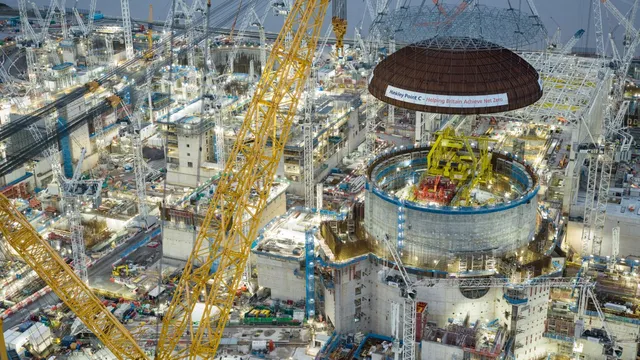
Inside Britain’s plans for a new nuclear age
2024-09-03 23:01- Ed Miliband is expected to announce the next phase of the UK's nuclear power revival by the end of the year.
- The focus will be on Sizewell C in Suffolk and a fleet of mini nuclear plants across Britain.
- Nuclear energy is seen as essential for transitioning to cleaner power and improving energy security.
Express your sentiment!
Insights
Ed Miliband, the energy secretary, is set to announce the next phase of the UK's nuclear power revival by the end of the year. This announcement will focus on two significant projects: Sizewell C in Suffolk and a series of mini nuclear plants across the country. These initiatives are part of Labour's commitment to nuclear energy, which is seen as crucial for transitioning to cleaner power sources and enhancing energy security in the UK. The push for nuclear energy comes in response to the rising energy prices, particularly gas, which have surged due to the ongoing war in Ukraine. Advocates for nuclear power argue that it can provide a reliable 'baseload' of energy, which is essential for balancing the intermittent nature of renewable sources like solar and wind. This reliability is increasingly important as the UK seeks to reduce its dependence on fossil fuels. The Labour Party's support for nuclear energy reflects a broader strategy to address climate change while ensuring a stable energy supply. By investing in nuclear power, the government aims to create a more resilient energy infrastructure that can withstand global market fluctuations and geopolitical tensions. Ultimately, the revival of nuclear energy in the UK is positioned as a key component of the country's energy policy, aiming to secure a sustainable and independent energy future while contributing to the global fight against climate change.
Contexts
The UK government has committed up to £5.5 billion to the Sizewell C nuclear project in Suffolk, a significant investment aimed at enhancing the country's energy security. This project has received building permission and is expected to take approximately 12 years to complete. However, the initiative has faced criticism from various groups, including the campaign organization Stop Sizewell C. Opponents argue that the project poses risks to local habitats and could negatively impact the tourism economy in the area. The substantial taxpayer investment in Sizewell C reflects the government's strategy to bolster energy independence and transition towards more sustainable energy sources. As the UK navigates its energy future, the Sizewell C project represents a pivotal development in the nation's nuclear ambitions, amidst ongoing debates about environmental and economic implications.